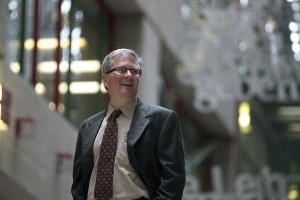CUFA BC, Robert Clift, February 19, 2013 — The 2013/14 provincial budget shortchanges students and their families according to the organization representing professors and other academic staff at BC’s public research universities.
“The provincial government perpetuates the myth that its cuts to the operating grants for universities, colleges and institutes will have no effect on students,” said Robert Clift, Executive Director of the Confederation of University Faculty Associations of BC (CUFA BC).
“Students have already lost support services and learning opportunities due to inadequate funding and these new cuts will shortchange students even further.”
“By 2015, per student operating grants to universities, colleges and institutes will have dropped 20% in real terms since the Liberals formed government,” Clift added.
The creation of the BC Training and Education Savings Grant will do little to help students and their families, say the professors.
“The BC Training and Education Savings Grant is a cynical gimmick”, Clift said. “The value of the government’s contribution will not even cover the increase in tuition fees by the time a child reaches age 18.”
“Using the government’s numbers, the value of the government’s contribution will fall $466 short of the tuition fee increase. Using more realistic calculations, the gap is $819,” Clift added. “This is on top of tuition fees that have already increased 99% under the Liberals.”
The government’s Skills and Training Plan also falls far short of what is needed, according to the professors.
“The investments announced by the government are one time and will not add a single new student space”, Clift said. “Moreover, the plan ignores the fact that 2/3 of job openings over the next decade will require a college or university credential other than trades certification.”
“The government’s training plan turns back the clock 40 years, treating British Columbians as hewers of wood and compressors of gas,” Clift added. “It practically ignores the growing impact of the value-added and knowledge economies.”
The Confederation of University Faculty Associations of BC represents 4,600 professors, librarians, instructors, lecturers and other academic staff at BC’s five public research universities – UBC (Vancouver and Kelowna), SFU (Burnaby, Surrey, Vancouver), UVic (Victoria), UNBC (Prince George, Quesnel, Terrace, Fort St. John) and Royal Roads (Victoria and international)

 Follow
Follow